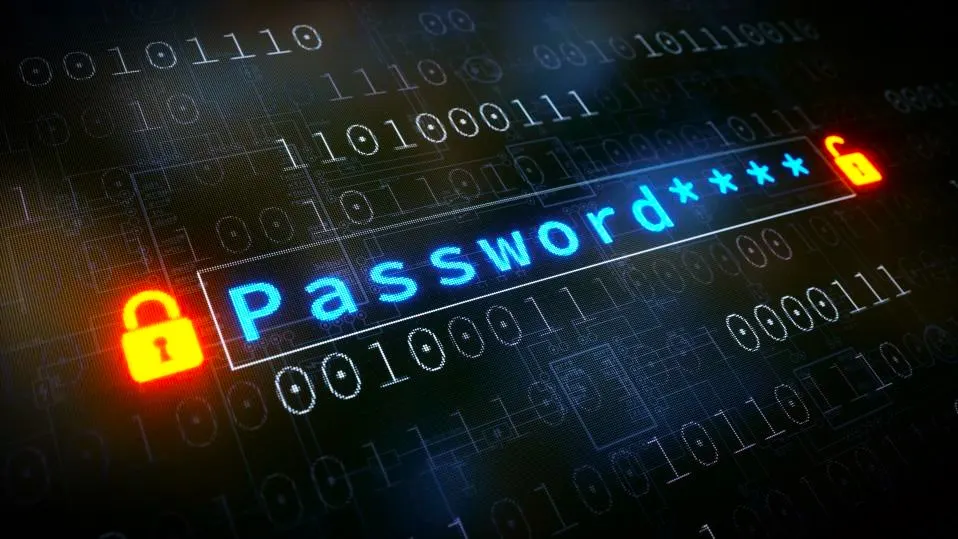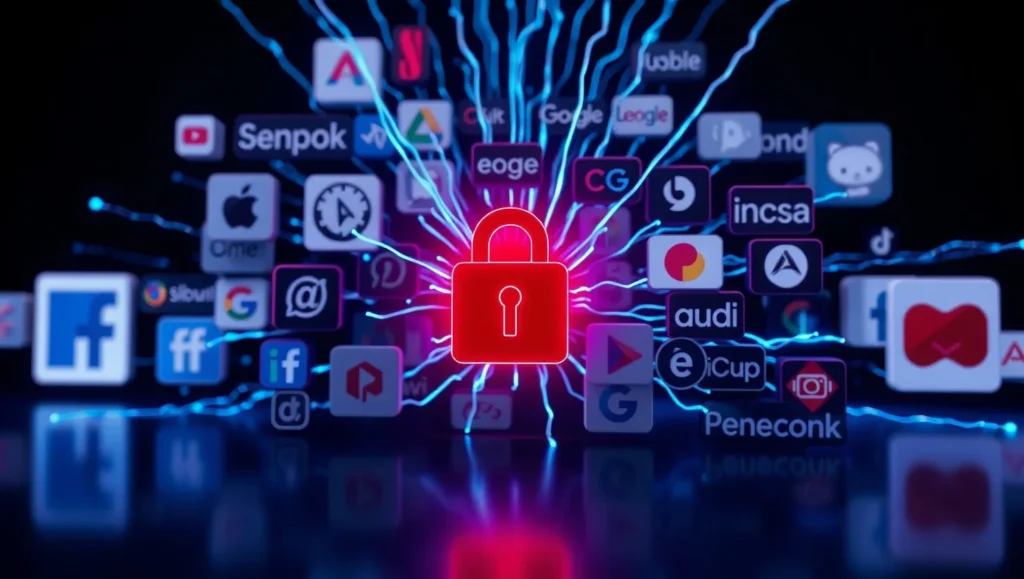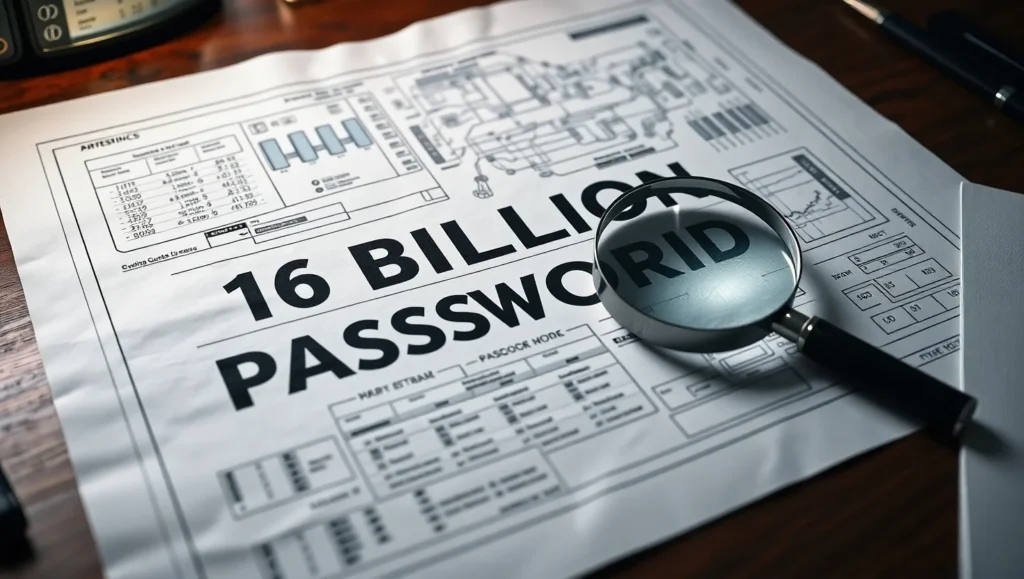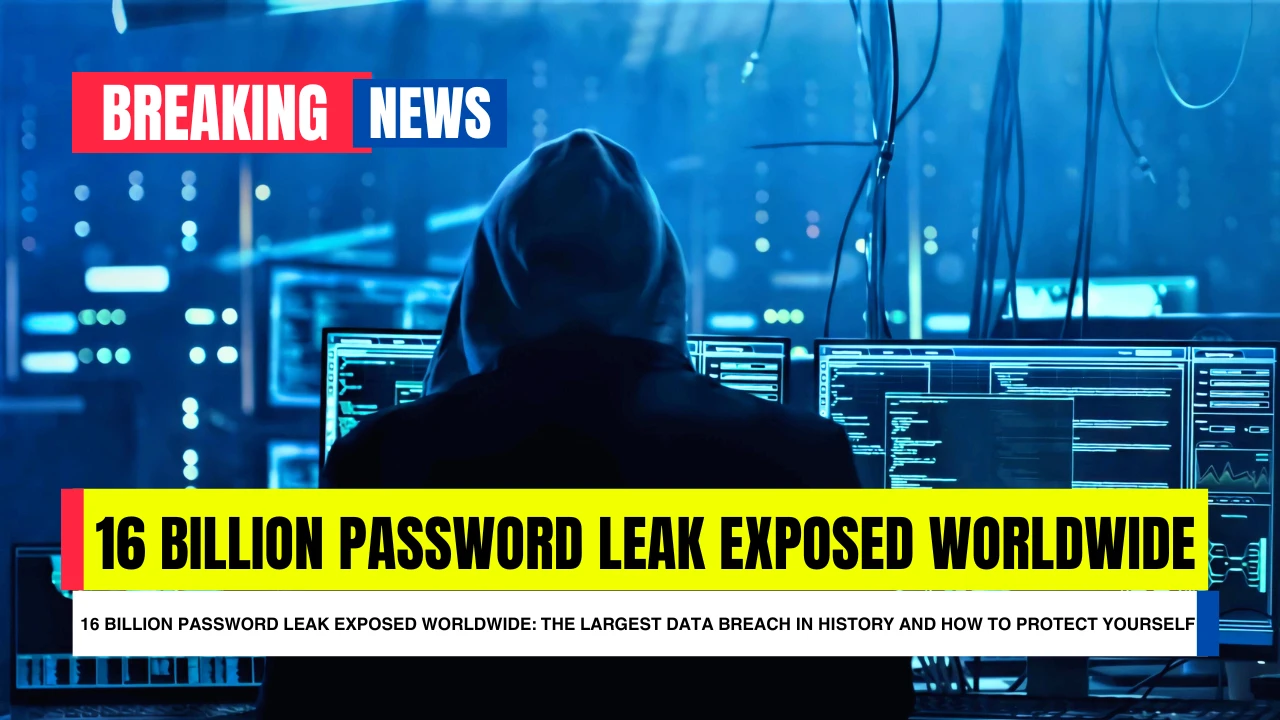Table of Contents
16 Billion Password Leak EXPOSED Worldwide: In a shocking revelation that has sent ripples through the cybersecurity world, a massive 16 billion password leak has been exposed worldwide. This unprecedented breach, potentially the largest data breach in history involving passwords, has left individuals and organizations scrambling to secure their digital identities. As we delve into the implications of this monumental leak, it’s crucial to understand its scope and take immediate action to protect our online presence.

Understanding the Scope of the Data Breach
The sheer magnitude of this 16 billion password leak is difficult to comprehend. To put it into perspective, this breach affects more than twice the world’s population. It’s likely that many individuals have had multiple accounts compromised across various platforms. This leak doesn’t just represent a single point of failure but rather a culmination of numerous breaches and data collection efforts by malicious actors.
Key points to consider:
- The leak includes passwords from various sources, including social media, email services, and e-commerce platforms.
- Some of the exposed passwords may be outdated, but many are likely still in use.
- The breach affects users globally, with no specific region or demographic being exempt.

Immediate Steps to Secure Your Accounts
If you’re reading this, it’s crucial to take immediate action to secure your online accounts. Here are some steps you should take right away:
- Change your passwords: Start with your most important accounts (email, banking, social media) and work your way down.
- Use a password manager: Tools like LastPass, 1Password, or Bitwarden can help you generate and store strong, unique passwords for each account.
- Enable two-factor authentication (2FA): This adds an extra layer of security beyond just your password.
- Check if your accounts have been compromised: Use services like Have I Been Pwned to see if your email or phone number appears in known data breaches.
Remember, the goal is to make it as difficult as possible for attackers to access your accounts, even if they have your password.

The Dark Web and Password Sales
One of the most concerning aspects of this massive leak is the potential for these passwords to be sold on the dark web. Cybercriminals often trade stolen credentials on underground forums, using them for various malicious purposes.
To prevent your information from being exploited on the dark web:
- Regularly monitor your accounts for suspicious activity.
- Use dark web monitoring services provided by some password managers or identity protection services.
- Be cautious about phishing attempts that may try to trick you into revealing your new passwords.

Moving Beyond Passwords: Google Passkeys
In light of this massive breach, it’s clear that traditional passwords are becoming increasingly vulnerable. Google, along with other tech giants, is pushing for the adoption of passkeys as a more secure alternative.
Google’s passkey migration guide offers a glimpse into a password-less future:
- Passkeys use public key cryptography, making them significantly more secure than passwords.
- They’re resistant to phishing attempts and server breaches.
- Passkeys are tied to your device and use biometric authentication, adding an extra layer of security.
To learn more about passkeys and how to start using them, visit Google’s passkey information page.

FBI Warnings: SMS Phishing on the Rise
The Federal Bureau of Investigation (FBI) has issued warnings about the increasing prevalence of SMS phishing, also known as smishing. This technique involves sending text messages that appear to be from legitimate sources to trick users into revealing sensitive information.
Tips to protect yourself from SMS phishing:
- Never click on links in unsolicited text messages.
- Don’t respond to texts asking for personal information.
- Verify the sender’s identity through official channels before taking any action.
- Report suspicious messages to your mobile carrier and the FBI’s Internet Crime Complaint Center.
Multi-Infostealer Attacks: A New Threat
The 16 billion password leak has brought attention to a sophisticated type of attack known as multi-infostealer. These malware variants are designed to steal various types of information, including passwords, credit card details, and cryptocurrency wallet data.
Protecting against multi-infostealer attacks:
- Keep your operating system and software up to date.
- Use reputable antivirus and anti-malware software.
- Be cautious when downloading attachments or clicking on links, even from seemingly trusted sources.
- Regularly back up your data to a secure, offline location.

Protecting Your Apple, Facebook, and Google Accounts
Given the widespread nature of this breach, it’s essential to take extra precautions with your accounts on major platforms like Apple, Facebook, and Google.
Steps to secure these accounts:
- Apple: Enable two-factor authentication and use a strong, unique Apple ID password.
- Facebook: Activate Facebook’s security features, including login alerts and two-factor authentication.
- Google: Use Google’s Security Checkup to review and strengthen your account security.
Remember to check for any unfamiliar devices or apps that may have access to these accounts and revoke their permissions if necessary.
Unique Password Strategies for 2025 and Beyond
As we look ahead to 2025 and beyond, it’s clear that our approach to passwords needs to evolve. Here are some strategies to create and manage unique passwords:
- Use passphrases: Instead of complex strings of characters, consider using long passphrases that are easy for you to remember but difficult for others to guess.
- Implement a personal algorithm: Create a system for generating passwords that incorporates elements specific to each site or service.
- Regularly update passwords: Set reminders to change your passwords every few months, especially for critical accounts.
- Use a password manager: This bears repeating – a good password manager is invaluable for generating and storing strong, unique passwords.
The Role of Cybersecurity Experts
Cybersecurity experts like Vilius Petkauskas from Cybernews play a crucial role in investigating and reporting on major breaches like the 16 billion password leak. Their work helps to:
- Raise awareness about the scale and impact of data breaches.
- Provide insights into the methods used by attackers.
- Offer guidance on best practices for personal and organizational cybersecurity.
For the latest updates and expert analysis on cybersecurity threats, follow reputable sources like Cybernews.
Phishing: Ground Zero for Password Leaks
Many large-scale password leaks, including potentially this 16 billion password breach, often start with successful phishing campaigns. Phishing remains one of the most effective ways for attackers to gather credentials en masse.
To protect yourself from phishing:
- Be skeptical of unsolicited emails, especially those asking for personal information.
- Check the sender’s email address carefully for any irregularities.
- Hover over links before clicking to see the actual URL destination.
- Use anti-phishing browser extensions and email filters.
Account Takeover Prevention
With billions of passwords now potentially in the hands of cybercriminals, the risk of account takeovers has significantly increased. Here are some tips to prevent unauthorized access to your accounts:
- Monitor your accounts for unusual activity.
- Set up alerts for login attempts from new devices or locations.
- Use unique security questions and answers for each account.
- Consider using a virtual private network (VPN) when accessing sensitive accounts on public Wi-Fi.
The Promise of Passkeys
As mentioned earlier, passkeys represent a promising alternative to traditional passwords. Here’s why they’re considered more secure:
- Passkeys are unique to each website and can’t be reused across different sites.
- They’re stored securely on your device and can’t be phished or leaked in server breaches.
- Passkeys eliminate the need to remember complex passwords.
To start using passkeys, check if your favorite websites and apps support this technology and follow their instructions for setup.
Analyzing the Impact of Mass Exploitation
The 16 billion password leak provides a blueprint for potential mass exploitation. Understanding this impact can help individuals and organizations better prepare for and mitigate future threats.
Potential consequences of mass exploitation:
- Increased instances of identity theft and financial fraud.
- Compromised personal and corporate data leading to reputational damage.
- Strain on cybersecurity resources as organizations scramble to respond.
To stay informed about the latest developments and analysis related to this breach, follow updates from reputable cybersecurity firms and government agencies like the National Cyber Security Centre.
Shared Responsibility in Cybersecurity
As we move towards 2025, it’s becoming increasingly clear that cybersecurity is a shared responsibility between individuals, organizations, and technology providers. Here’s how each group can contribute:
Individuals:
- Practice good password hygiene and use additional security measures like 2FA.
- Stay informed about the latest threats and best practices.
- Report suspicious activities to relevant authorities.
- 16 Billion Password Leak EXPOSED Worldwide
Organizations:
- Implement robust security policies and regular employee training.
- Invest in advanced threat detection and prevention technologies.
- Conduct regular security audits and penetration testing.
Technology Providers:
- Develop and promote more secure authentication methods like passkeys.
- Provide clear, user-friendly security features and guidance.
- Collaborate with cybersecurity experts to address emerging threats.
- 16 Billion Password Leak EXPOSED Worldwide
Conclusion
The 16 billion password leak serves as a stark reminder of the ongoing challenges we face in securing our digital lives. As we’ve explored in this post, the implications of this breach are far-reaching, affecting individuals and organizations worldwide. However, by taking proactive steps to secure our accounts, adopting new technologies like passkeys, and staying informed about the latest threats and best practices, we can significantly reduce our risk of falling victim to cybercrime.
Remember, cybersecurity is an ongoing process, not a one-time fix. Stay vigilant, keep your defenses up to date, and don’t hesitate to seek help from experts when needed. Together, we can build a more secure digital future.
What steps will you take today to protect your online accounts? Share your thoughts and experiences in the comments below, and let’s continue this important conversation about digital security in the wake of this unprecedented password leak.
Frequently Asked Questions (FAQs) About 16 Billion Password Leak EXPOSED Worldwide
What makes the 16 billion password leak the largest in history?
This breach aggregates credentials from multiple infostealer attacks, combining over 30 datasets—from tens of millions up to 3.5 billion records each—into one unprecedented collection of 16 billion unique login entries, dwarfing any prior individual breach. 16 Billion Password Leak EXPOSED Worldwide
Which platforms are affected by this leak?
Exposed credentials span dozens of services, including social media (Apple, Facebook, Google), email providers, e‑commerce sites, code repositories (GitHub), messaging apps (Telegram), and even some government portals—meaning virtually every corner of the online world is at risk. 16 Billion Password Leak EXPOSED Worldwide
Are all leaked passwords still valid?
Not necessarily. Some passwords may be outdated or have been changed since their original breach. However, many users reuse passwords across accounts, so even older credentials can grant attackers access to active logins. 16 Billion Password Leak EXPOSED Worldwide
How can I check if my account was compromised?
Use reputable “Have I Been Pwned”‑style services: enter your email or phone number to see if it appears in known breach datasets. Many password managers now integrate dark‑web monitoring to alert you automatically if new leaks include your credentials. 16 Billion Password Leak EXPOSED Worldwide
What should I do immediately after discovering a compromise?
Change the affected account’s password to a strong, unique passphrase.
Enable two‑factor authentication (2FA) wherever possible.
Review account activity and revoke unknown devices or sessions.
If you reused the same password elsewhere, update those accounts too.
16 Billion Password Leak EXPOSED Worldwide
Why are security experts urging a move to passkeys?
Passkeys use asymmetric cryptography tied to your device and biometric or PIN verification. They’re resistant to phishing and server‑side database leaks, eliminating the single‑point‑failure of traditional passwords. 16 Billion Password Leak EXPOSED Worldwide
How can I protect myself from SMS phishing (smishing)?
– Never click links in unsolicited texts.
– Don’t reply with personal data.
– Verify any urgent requests by contacting the organization through official channels.
– Report suspicious messages to your carrier and the FBI’s Internet Crime Complaint Center. 16 Billion Password Leak EXPOSED Worldwide
What is a multi‑infostealer attack?
It’s a coordinated malware campaign that simultaneously harvests various data types—passwords, credit‑card info, crypto wallet keys—from infected devices, then funnels everything into centralized leak markets for criminal resale. 16 Billion Password Leak EXPOSED Worldwide
How do I secure major accounts like Apple, Facebook, and Google?
Apple: Activate 2FA on your Apple ID and use a unique strong password.
Facebook: Turn on login alerts, use 2FA via an authenticator app, and audit connected apps.
Google: Run Google’s Security Checkup, review sign‑in devices, and switch to passkeys where available.
16 Billion Password Leak EXPOSED Worldwide
What long‑term strategies can I adopt to stay safe in 2025 and beyond?
Use a reputable password manager to generate and store unique credentials.
Employ passphrases or personal‑algorithm‑based passwords.
Regularly rotate critical passwords every 3–6 months.
Keep software and operating systems up to date.
Stay informed about emerging threats through trusted cybersecurity news outlets.
16 Billion Password Leak EXPOSED Worldwide
